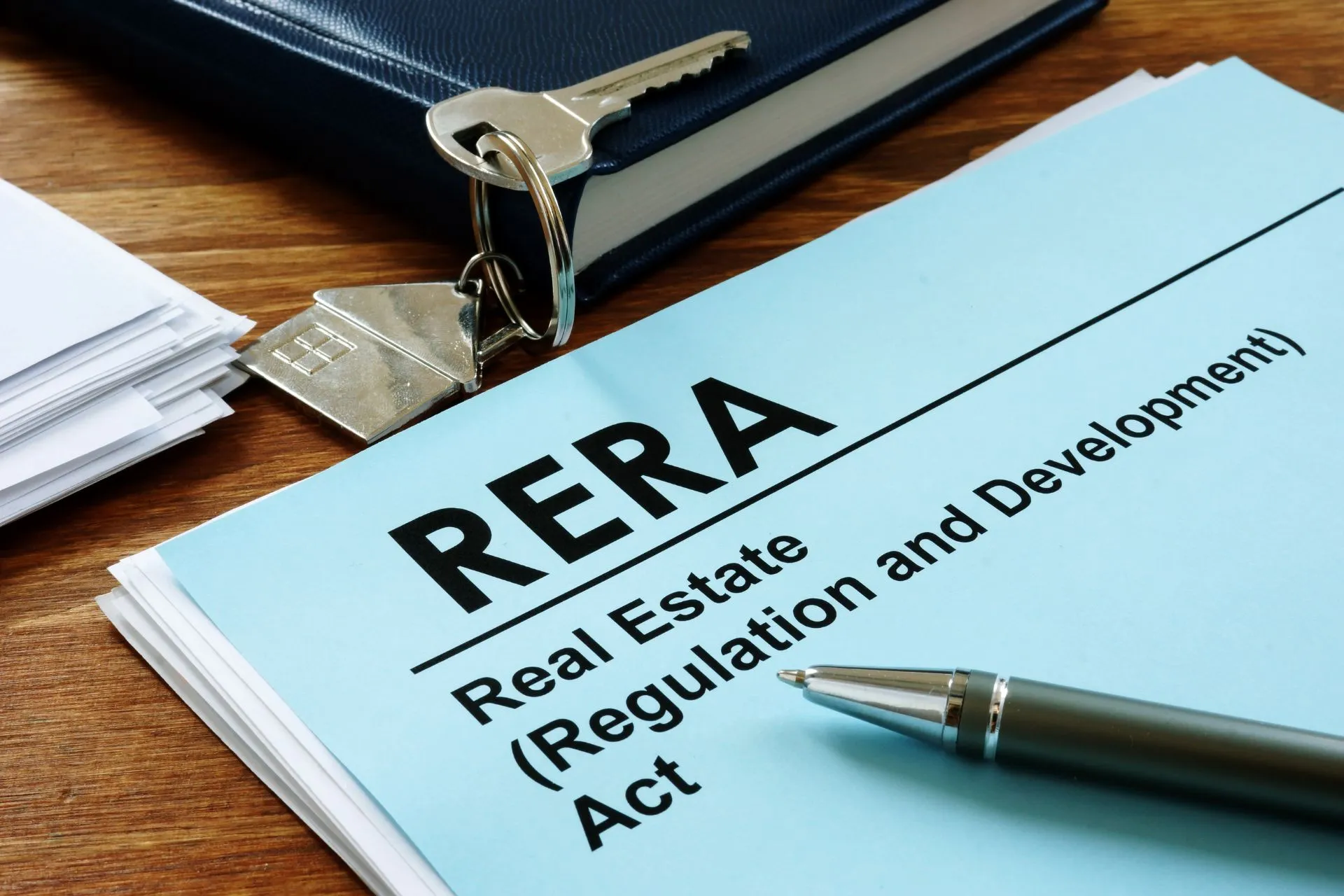
Real estate transactions can be complex and overwhelming, especially when it comes to navigating the myriad of regulations that govern the industry. Whether you are a homebuyer or a seller, understanding and complying with real estate regulations is crucial to ensure a smooth and successful transaction. In this comprehensive guide, we will explore the common regulations that homebuyers and sellers need to be aware of, discuss important legal documents, delve into state-specific regulations, and provide tips on navigating zoning and land use regulations. So let’s dive in and demystify the world of real estate regulations!
Pattaya vs. Phuket | Comparison of Real Estate Opportunities
Understanding Real Estate Regulations
Real estate regulations are a set of rules and laws that govern the buying, selling, and leasing of properties. These regulations are in place to protect the rights of both buyers and sellers, ensure fair and ethical practices, and maintain the integrity of the real estate market. Understanding these regulations is essential for all parties involved in a real estate transaction.
<< Thailand Investment Fest | All You Need To Know >>
Common Real Estate Regulations for Homebuyers
As a homebuyer, there are several key regulations that you should be aware of. One of the most important regulations is the requirement for a property inspection. A property inspection is a thorough examination of the property by a professional inspector to identify any potential issues or defects. In many states, sellers are required by law to disclose any known defects or problems with the property.
Another important regulation pertains to financing. If you are obtaining a mortgage to finance your home purchase, you will need to comply with certain regulations set forth by lending institutions and government entities. These regulations may include providing financial documentation, undergoing a credit check, and meeting specific income and debt-to-income ratio requirements.
Additionally, it is crucial to understand the regulations surrounding fair housing. Fair housing regulations prohibit discrimination based on race, color, religion, sex, national origin, disability, and familial status. As a homebuyer, you have the right to be treated fairly and equally in your search for a home.
How to Strategize Your Down Payment for an Investment Home
Common Real Estate Regulations for Sellers
Sellers also need to be aware of various regulations when listing and selling their property. One such regulation is the requirement to provide accurate and complete disclosure statements. These statements typically include details about the property’s condition, any known defects, and other relevant information that may impact the buyer’s decision.
Another important regulation for sellers is the requirement to obtain a proper and valid certificate of occupancy. A certificate of occupancy is a document issued by the local government or building department that confirms that the property complies with all applicable building codes and regulations. It is essential for sellers to ensure that their property meets all requirements before listing it for sale.
Additionally, sellers should be aware of regulations related to advertising and marketing their property. These regulations aim to prevent deceptive practices and ensure that the information provided to potential buyers is accurate and truthful. Sellers should avoid making false or misleading statements about the property, as it can lead to legal consequences.
<< Real Estate Lawyer for your transactions | including recommendations >>
Important Legal Documents in Real Estate Transactions
In any real estate transaction, there are several legal documents that play a crucial role. These documents serve to protect the interests of all parties involved and outline the terms and conditions of the transaction. Some of the most common legal documents include:
- Purchase Agreement: This document outlines the terms and conditions of the sale, including the purchase price, contingencies, and closing date.
- Deed: The deed is a legal document that transfers ownership of the property from the seller to the buyer. It includes a description of the property and is recorded with the appropriate government entity.
- Title Insurance: Title insurance protects the buyer and lender against any defects in the property’s title. It ensures that the buyer is acquiring clear and marketable title.
- Closing Disclosure: This document provides a detailed breakdown of the closing costs, loan terms, and other financial aspects of the transaction. It is provided to the buyer before the closing.
- Lease Agreement: In the case of a rental property, a lease agreement is a legal contract between the landlord and tenant that outlines the terms and conditions of the lease.
Best Investment Options For Beginners
Understanding these legal documents and seeking professional advice when needed is crucial to ensure a smooth and legally sound real estate transaction.
State-Specific Real Estate Regulations
In addition to the common regulations mentioned above, it is important to note that real estate regulations can vary from state to state. Each state has its own set of laws and requirements that govern real estate transactions. These regulations can cover a wide range of areas, including property disclosure requirements, licensing of real estate professionals, and escrow procedures.
<< Free Rental Lease Agreement >>
Navigating Zoning and Land Use Regulations
Zoning and land use regulations play a significant role in real estate transactions, particularly for property developers and investors. These regulations dictate how land can be used and what types of structures can be built in a particular area. It is essential to understand and comply with these regulations to avoid potential legal issues and delays in the development process.
Before purchasing a property or undertaking any development plans, it is crucial to research and understand the zoning laws and regulations of the area. This will help you determine if your intended use of the property is permitted and if any variances or special permits are required. Consulting with a land use attorney or a knowledgeable real estate professional can be beneficial in navigating these regulations successfully.
Money Loan Thailand | Tips and How to Get
How to Comply with Fair Housing Regulations
Fair housing regulations aim to ensure equal opportunity and prevent discrimination in housing transactions. As a homebuyer or seller, it is essential to understand and comply with these regulations to avoid legal consequences and promote fair housing practices.
To comply with fair housing regulations, it is important to treat all potential buyers or tenants equally and avoid any form of discrimination based on race, color, religion, sex, national origin, disability, or familial status. This includes providing equal access to housing opportunities, treating all applicants fairly during the selection process, and avoiding any discriminatory advertising or marketing practices.
Educating yourself about fair housing laws and staying updated on any changes or updates can help you navigate these regulations effectively and ensure a fair and inclusive real estate transaction.
Potential Consequences of Violating Real Estate Regulations
Violating real estate regulations can have serious consequences for both buyers and sellers. Depending on the nature and severity of the violation, the consequences can range from fines and penalties to legal disputes and even criminal charges.
For buyers, failing to comply with regulations can result in purchasing a property with hidden defects or legal issues. This can lead to costly repairs, legal battles, or even the loss of the property. Sellers, on the other hand, may face legal action, financial penalties, or reputational damage if they fail to disclose important information or engage in deceptive practices.
To protect yourself and avoid potential consequences, it is essential to educate yourself about the regulations, seek professional advice when needed, and ensure full compliance throughout the entire real estate transaction.
Conclusion and Final Tips for Navigating Real Estate Regulations
Navigating real estate regulations may seem daunting, but with proper knowledge and guidance, you can successfully navigate the complex world of real estate transactions. Whether you are a homebuyer or a seller, understanding the common regulations, staying updated on state-specific requirements, and seeking professional assistance when needed are key to a smooth and legally sound transaction.
Remember to familiarize yourself with important legal documents, comply with fair housing regulations. By doing so, you can protect your interests, avoid potential legal issues, and ensure a successful real estate transaction.
So, whether you’re buying your dream home or selling your property, make sure to stay informed, follow the regulations, and seek professional guidance. Happy navigating!
Latest News
-
phum
- April 4, 2025
Golden Location Condos in Bangkok
Golden Location Condos in Bangkok Remain Attractive: Drawing in Foreigners and Investors ️ In recent years, the real estate market…
Investable Condominiums in Bangkok 2025
- February 19, 2025
Who is Eligible for the ‘Baan Puer Kon Thai’ Project?
- January 22, 2025
“Baan Puer Kon Thai” A Pathway to Homeownership
- January 21, 2025
Why are Pattaya condos a popular option?
- September 6, 2024









